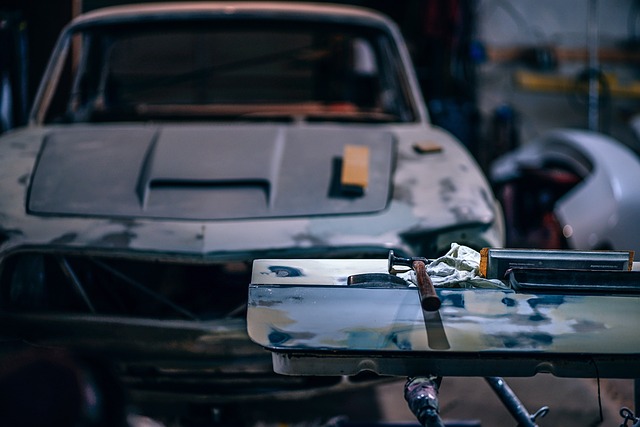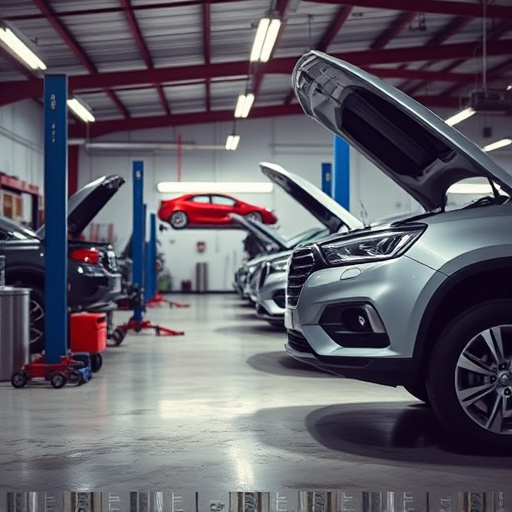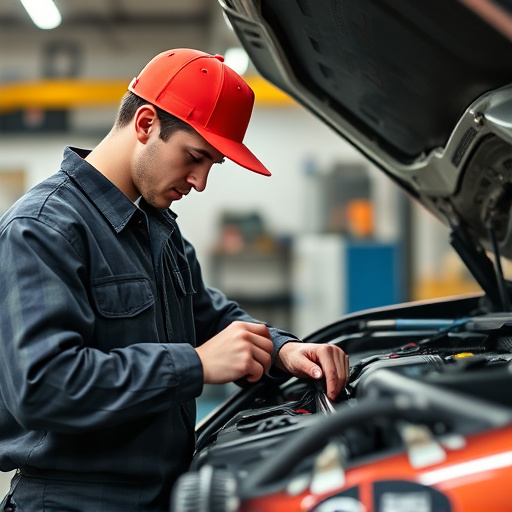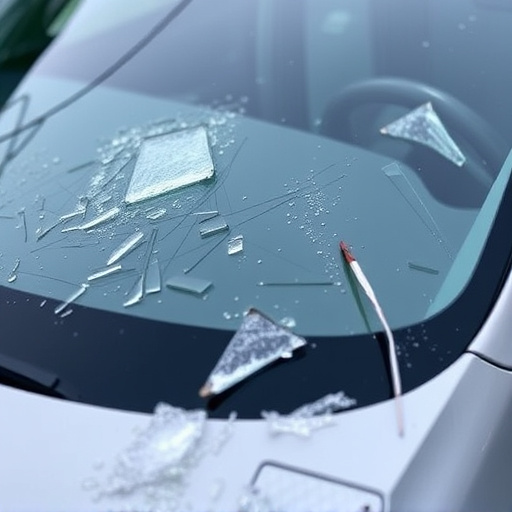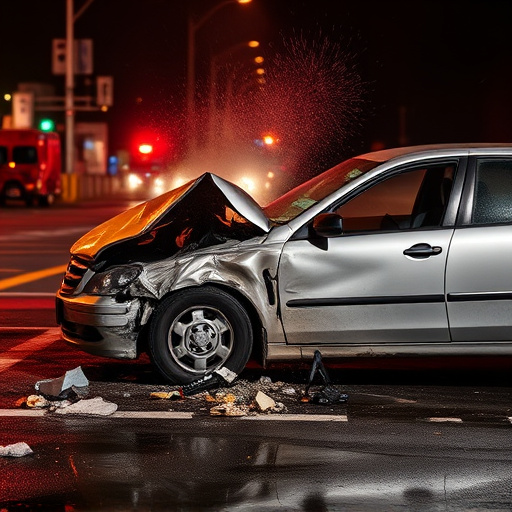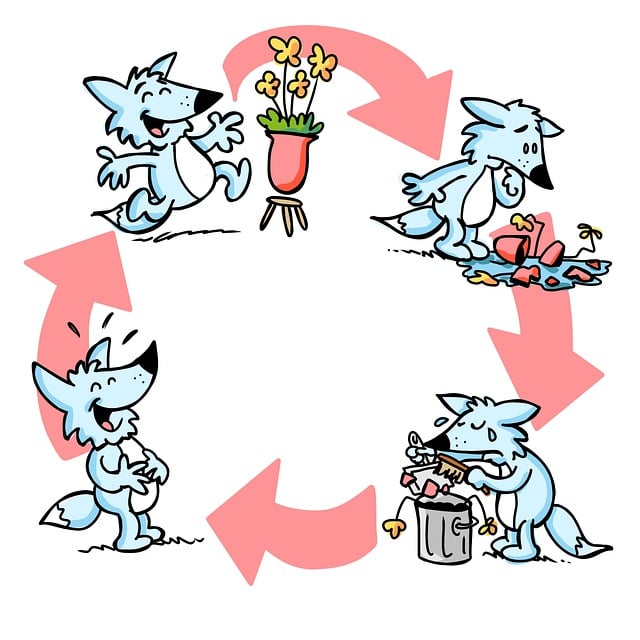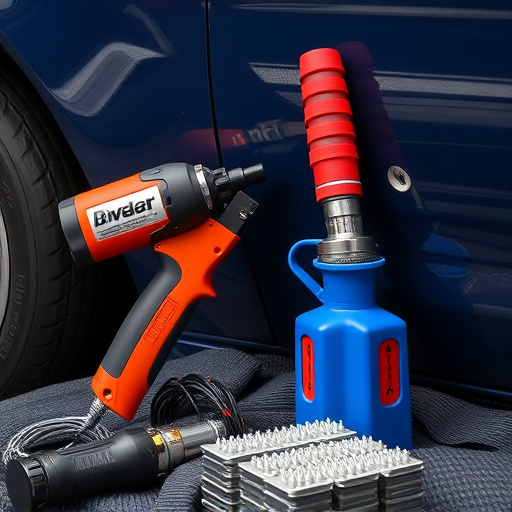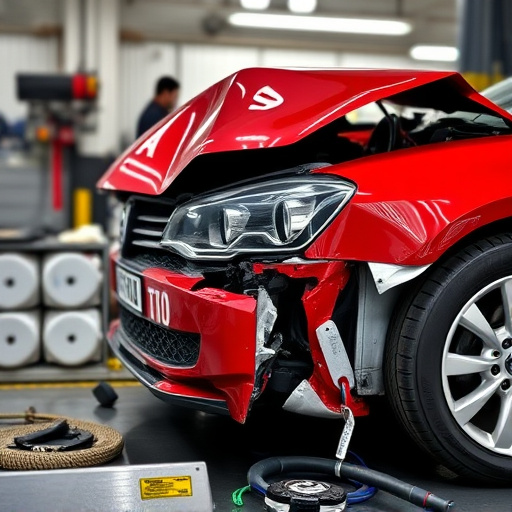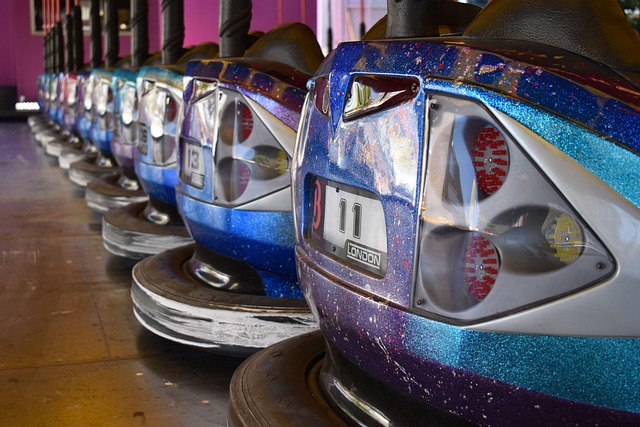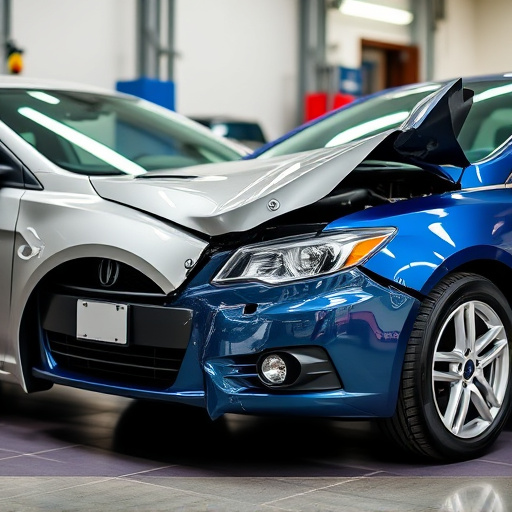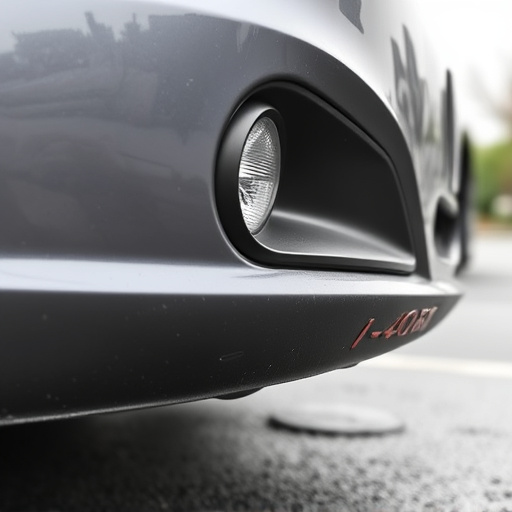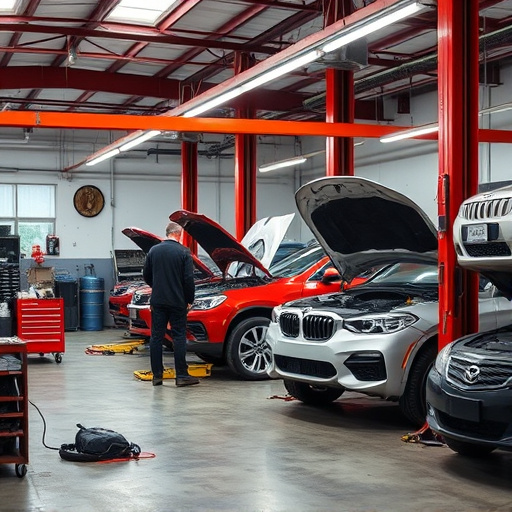Water-based paint technology in collision repair offers environmental benefits and faster drying times, boosting car resale values due to high-quality aesthetics. However, its durability may not match oil-based paints, and specialized application methods increase costs. Automotive professionals emphasize the importance of advanced techniques, meticulous preparation, and proper training for optimal water-based paint results, ensuring vehicle value preservation and buyer confidence.
Water-based paint technology is transforming the auto collision repair industry, offering a sustainable and efficient alternative to traditional paints. This innovative approach not only reduces environmental impact but also promises significant benefits for vehicle resale value. In this article, we explore the advantages of water-based paint in collision repair, its effect on resale prices, and best practices for professionals aiming to maximize customer satisfaction and vehicle retention. Uncover how this eco-friendly solution can be a game-changer in the post-repair market.
- Understanding Water-Based Paint Technology and Its Benefits in Collision Repair
- The Impact on Vehicle Resale Value: Pros and Cons of Using Water-Based Paints
- Best Practices for Professionals: Maximizing Resale Value with Efficient Water-Based Paint Application
Understanding Water-Based Paint Technology and Its Benefits in Collision Repair
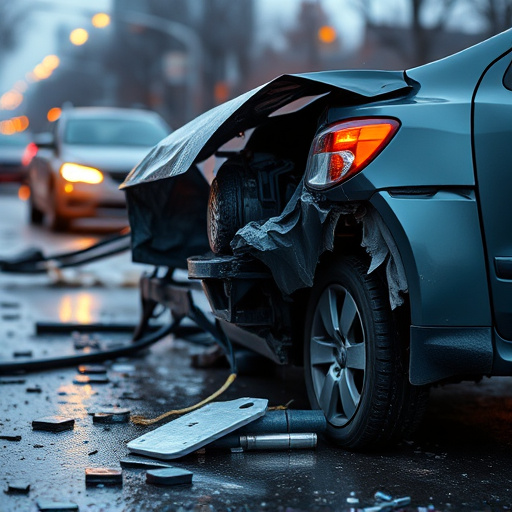
Water-based paint technology has revolutionized auto bodywork and car paint repair processes. Unlike traditional solvent-based paints, water-based paints use water as a carrier instead of harsh chemicals. This shift offers several advantages for collision repair services. The benefits are multifaceted, from improved environmental friendliness to enhanced performance. Water-based paints dry faster, reducing downtime for vehicle owners, and they offer excellent coverage and durability, ensuring precise color matching during repairs.
Moreover, these paints are less likely to yellow over time, preserving the vehicle’s original appearance. This technology is particularly beneficial for car paint repair, as it promotes a quicker turnaround while maintaining high-quality aesthetics. The adoption of water-based paint collision repair methods underscores the evolving standards in vehicle bodywork, contributing to better resale values and customer satisfaction.
The Impact on Vehicle Resale Value: Pros and Cons of Using Water-Based Paints
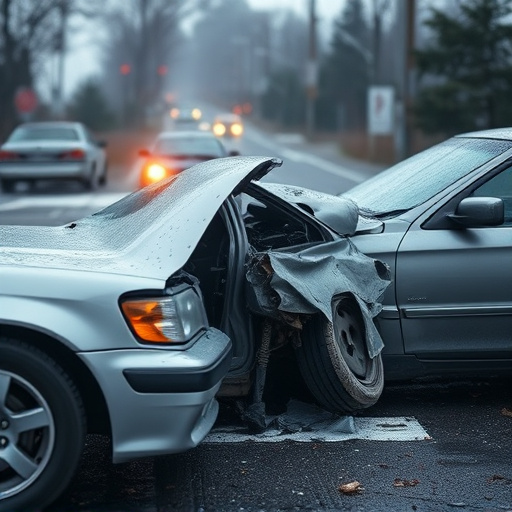
Water-based paints have gained popularity in vehicle collision repair due to their environmental friendliness and rapid drying time. These advantages can significantly impact a car’s resale value. Pros include reduced odours during application, lower volatile organic compound (VOC) emissions, and minimal risk of toxic fumes affecting future owners’ health. The quick drying process allows for faster repairs, meaning vehicles can be returned to their owners more swiftly, which is an appealing factor for both repair shops and customers.
However, there are potential drawbacks. Water-based paints might not match the durability and longevity of traditional oil-based paints, especially in extreme weather conditions. This could lead to repainting needs down the line, impacting resale value. Additionally, while water-based paints are better for the environment, they may require specialized knowledge and equipment to apply effectively, driving up repair costs. Thus, potential buyers might be cautious when presented with a vehicle that has undergone water-based paint collision repair due to these perceived or actual additional expenses.
Best Practices for Professionals: Maximizing Resale Value with Efficient Water-Based Paint Application

Professionals in the automotive industry know that efficient water-based paint application is key to maximizing resale value after a collision. Best practices involve utilizing advanced techniques and high-quality materials specifically designed for water-based paint collision repair. This includes meticulous surface preparation, ensuring optimal drying conditions, and applying even coats to achieve a factory-like finish.
By adopting these practices, car bodywork services can enhance the overall aesthetics and durability of vehicle dent repair. Proper training and adherence to guidelines ensure that every repair, no matter how minor, is handled with precision and care. This not only preserves the car’s original value but also instills confidence in potential buyers who appreciate the meticulousness and professionalism reflected in the final product—a true testament to quality car paint repair.
Water-based paint technology has revolutionized collision repair, offering numerous benefits that can positively impact vehicle resale value. By utilizing efficient application methods and considering the advantages outlined in this article, professionals can maximize the potential resale price of repaired vehicles. As the adoption of water-based paints continues to grow, understanding these practices will become increasingly vital for maintaining and enhancing the overall value of automobiles in the market.

